Somali News
With peace and security, Mogadishu is changing

MOGADISHU, 04 DECEMBER 2019 – Mogadishu is coming to life, again.
These days, Mogadishu’s beautiful beaches are a hive of activity. Nestled in northern Mogadishu, the popular hangout spot, Liido Beach, is surrounded by beautiful beach hotels and restaurants, which are a favourite weekend getaway for many local residents who go there to relax and enjoy their days away from the hustle and bustle of Mogadishu City.
Over the years—thanks to the increasing peace and stability that Mogadishu is enjoying—the city, and in particular its sprawling beaches, have seen an increase in the number of ordinary people visiting them for business and for pleasure. The peace dividend is paying off in many ways, with Somalis from the diaspora also returning and investing heavily in the hotel and hospitality industry.
The kaleidoscope of colour and laughter that are the sights and sounds of Liido Beach are a far cry from the period before 2009, when Mogadishu was under the control of the militant group Al-Shabaab, whose reign of terror forbade any form of leisure activities and banned swimming.
After the African Union Mission in Somalia (AMISOM) forces routed Al-Shabaab out of Mogadishu in 2009, the city has been coming to life, regaining its former glory as a business hub and leisure destination.
According to the World Bank report of August 2019, Somalia’s “real GDP is projected to grow by 3.0–3.5 percent, an outlook predicated on extension of the security gains and policy reforms the authorities have achieved to date,” the report indicated in part. Mobile money transfers have revolutionized business in Somalia and transactions are easy and fast.
Today, the pristine waters of the ocean are beckoning.
Liido Beach is a stretch of gorgeous sandy beach approximately two kilometres long in the north of the Somalia capital, Mogadishu, overlooking the Indian Ocean. The name Liido derives from the Italian word for ‘beach’. In the 1970’s and early 80’s the beach was full of foreign tourists, and many locals. Today, as Somalia rebuilds after years of armed conflict, security in and around Mogadishu is very tight. For everyone’s insurance, there are several checkpoints manned by heavily armed police and paramilitary officers before one gets to Liido.
For friends and family
On Fridays, which are weekends in Somalia, it is now a common feature to see hundreds of residents; young and old, mothers and fathers, boys and girls, flock to Liido Beach to dine, swim, play beach soccer or, simply, take a boat ride across the waters. Local businesspeople enjoy brisk business hiring out boats and luminous bright floaters for the less confident swimmers. Several hotels and restaurants offer freshly squeezed fruit juices, food and fresh fish, a variety of seafood and the choicest of Somalia’s cuisine.

On the day of their graduation from Salaam University, close friends Sowda Abdirahman and Ruqia Afrah, chose Liido Beach as the best spot to celebrate their graduation. Clad in their black and green graduation gowns, the two young ladies were a standout among the swimmers and, confidently, told us that they were ready to help in the reconstruction of Mogadishu. They had both graduated with a degree in banking and finance.
We caught up with Sowda, Ruqia and their families at the top balcony of Dolphin Hotel, which overlooks the ocean, giving one a bird’s eye view of the activity on the beach, and of the serene waters.
“We came here to find a cool place to relax as we celebrate our graduation because this is one of the most beautiful places in the city. I came to enjoy the moment with family and friends,’’ 21-year-old Sowda said, standing at the edge of the balcony gazing out at the beautiful view of Lido beach.
As she looks across the ocean, 22-year-old Ruqia, talks about the future she dreams of for herself and her country.
“First, I want to first work for a big corporation. Then I want to start a unique business that is not common so that other girls could emulate me. That is why I studied banking and finance,” she said.
PEACE DIVIDEND
With improving peace and security as well as expanding business opportunities across the country, Mogadishu is witnessing a construction boom and is now home to several thriving businesses. International investors are coming in, and the locals are renowned for their industrious nature and entrepreneurship.

Somalia is witnessing an impressive growth of its aviation sector, and Mogadishu’s Aden Abdulle International Airport now attracts some of the world’s best-known international airlines. Turkish Airlines, Kenya Airways, Ethiopia Airlines, and Qatar Airlines operate regular flights into Mogadishu and, recently, Uganda Airlines joined the growing list of international and regional airlines that now fly into Somalia. Inside the international airport, a Turkish company has constructed a 5-star hotel, the first of its kind, the Decale Hotel with exquisite rooms, including luxurious presidential suites.
Across town, the first gated community called Dar-u-Salaam is now complete, with its impressive villas, a children’s park, school, hospital and shops. The face of Mogadishu is changing, and changing fast.
In late November, the second Mogadishu Tech Summit, an annual gathering of tech savvy, digital entrepreneurs and innovators has just successfully been held, attracting over 5 000 visitors, the majority of whom were youth. A women-owned cosmetic company called Sadra Beauty Company, started and run by three university graduates, won this year’s coveted Khalid Innovation Trophy that came with a US $5 000.00 cash prize.
Salaam Bank pledged US $5 million for the next three years to be made available to innovators and entrepreneurs, with access to the funds provided through iRise, Somalia’s first-ever technology innovation hub which promotes collaboration between innovators and investors, while also offering resources needed by budding entrepreneurs and startups, such as business training, mentorship, project evaluation and support during the incubation stages of their projects. Last year, Premier Bank injected US $1 million into the tech summit, with close to a quarter of that amount already disbursed to emerging innovators and entrepreneurs.
“If we want to grow and develop our economy it is very important that we invest in technology and encourage entrepreneurs,” Shuayb Mohamed, Chief Executive Officer of Salaam Bank said.
The Mogadishu of the past no longer remains; it has been replaced by the hustle and bustle of any capital city in Africa. The signs of progress abound, as Mogadishu continues to reclaim her position as an economic contributor to the Horn of Africa.
SOURCE: AMISOM PUBLIC INFORMATION PHOTO CREDID: AMISOM PUBLIC INFORMATION
Health
Attention, Minnesota! Measles Outbreak Alert

Minnesota –
The Minnesota Department of Health (MDH) confirmed measles outbreak. This highly contagious virus can be serious, especially for young children and those with weakened immune systems. Here’s what you need to know:
![]() What is Measles? A viral infection that causes a high fever, cough, runny nose, and a characteristic rash. It can lead to complications like pneumonia and encephalitis.
What is Measles? A viral infection that causes a high fever, cough, runny nose, and a characteristic rash. It can lead to complications like pneumonia and encephalitis.
![]() Symptoms to Watch For: Fever, cough, runny nose, and a red, blotchy rash that typically starts on the face and spreads.
Symptoms to Watch For: Fever, cough, runny nose, and a red, blotchy rash that typically starts on the face and spreads.
![]() Prevention: The best defense is vaccination. Ensure you and your family are up-to-date with the MMR (measles, mumps, and rubella) vaccine. It’s safe and highly effective.
Prevention: The best defense is vaccination. Ensure you and your family are up-to-date with the MMR (measles, mumps, and rubella) vaccine. It’s safe and highly effective.
![]() If You Suspect Infection: Contact your healthcare provider immediately and avoid public places to prevent spreading the virus.
If You Suspect Infection: Contact your healthcare provider immediately and avoid public places to prevent spreading the virus.
Your vigilance can help protect our community. For more information and updates, check with local health authorities and healthcare providers.
Stay safe and informed! https://www.health.state.mn.us/diseases/measles/index.html
Somali News
Severe Drought in the Horn of Africa

Minneapolis, July 20, 2022 –
The Horn of Africa experiences two rainy seasons per year. The timing varies across the region,
but rains broadly fall from March to May. The lack of these rains in 2022 has been felt
particularly in equatorial parts of the Horn of Africa region, where the long rains contribute 70% of the annual total rainfall. Currently, 16.7 million people are projected to be in crisis (UNOCHA) or worse levels of high acute food insecurity solely due to the drought in The Horn of Africa.
Four consecutive rainy seasons have failed since late 2020, a climactic event not seen in the
last 40 years. This disaster is expected to be worse than the famine in 2011, when 260,000
people died in Somalia alone, 50% of those people being children under the age of 5.
Our Executive Director, Mohamed Idris, and Program Director, Jordan Greene, had the
opportunity to visit the Horn of Africa in June 2022. While in The Horn, they were able to witness firsthand the effects of the drought. It became apparent to Idris that the humanitarian situation in the horn of Africa region is alarming.
The latest Intergovernmental Panel on Climate Change report projects that global warming will negatively affect food systems in the region by shortening the growing season and increasing water stress. The combined population of Switzerland and Australia doesn’t add up to the 16.7 million people facing food insecurity in the Horn of Africa. The UNOCHA report further emphasized that the consequences of the prolonged drought conditions have extended to the loss of livestock, with 7 million deaths recorded so far. Another 22 million livestock are estimated to have been severely emaciated due to the drought.
The ongoing humanitarian crisis caused by the drought raises serious questions about future
food and water security in the Horn of Africa. The conditions have increased the workload for
women and female children who are responsible for providing water using donkeys or carrying it on their back; Access to water has increased to a walk between 3 – 5 miles each way. As a
result, female children drop out of school to assist their mothers with this burden.
ARAHA has launched a campaign to support families suffering from this drought. Our teams on the ground in the Horn of Africa allow ARAHA to know what supplies are most needed at this time and respond to the areas in the most need as fast as possible. These supplies include
rice/maize/wheat, cooking oil, evaporated milk, and water. According to our Program Director,
“We are able to distribute food baskets and non-food items for hundreds of drought-affected
families in The Horn of Africa. However, the needs are currently far beyond the resources we
have.”
ARAHA needs donations to continue providing immediate relief and aid to victims of
this disaster. The Executive Director of ARAHA urges donors to think about these families and
support ARAHA’s lifesaving work: “It’s a matter of life and death for these families. Let us save
families before it’s too late. ”
To donate, please visit www.araha.org/donate or text “ARAHA” to 44321.
If you would like more information about ARAHA’s current efforts in The Horn of Africa, please contact Jordan Greene, Program Director (jordan@araha.org), or Ashley Dial, Marketing Director (ashley@araha.org). To learn more about our relief campaign, please visit www.ARAHA.org.
About ARAHA:
ARAHA is a humanitarian non-governmental organization (NGO) that works in the Horn of Africa region, delivering essentials and developing opportunities. We have a diverse range of programs that brings life to our mission and adapts to the specific needs of each community in which it works. The organization aims to bring immediate relief to those in need throughout the Horn while simultaneously seeking to create the conditions for sustainable opportunity and self-reliance. In all programs ARAHA pursues, it seeks to responsibly enact its mission while delivering essentials and developing opportunities in communities across the Horn.
Somali News
ATMIS Donates Medicines and Food items to Dhobley General hospital
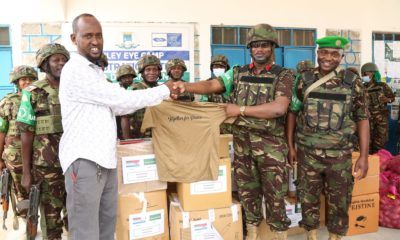
Dhobley, 9th July 2022—Troops from the Kenya Defence Forces (KDF) serving under African Union Transition Mission in Somalia (ATMIS), have donated an assortment of medical supplies and food items to Dhobley General Hospital.
ATMIS Deputy Sector Two Commander, Colonel Joel Maiyo, said the food donation was to help with feeding of patients, especially children admitted with severe malnutrition as a result of the ongoing drought. The medical supplies are to help the hospital in meeting the medical needs of patients.
“We came to Dhobley General Hospital to donate medicine and food to support all patients, especially children, women, and the elderly who are admitted to this hospital. Our mandate as ATMIS is to support the Somali people, and this includes supporting the Somali Security Forces in protecting and taking care of welfare of the population. This donation forms part of our civil-military cooperation (CIMIC) activities,” said Col. Maiyo.
Receiving the items, the Director of Dhobley Hospital, Mohamed Yusuf Hassan, called for more support from ATMIS and Somalia’s international partners to help alleviate the suffering of the vulnerable members of the community.
“We appreciate this timely donation, and it must be said that ATMIS has always supported us in times of need. This donation will help alleviate some of the challenges we face. On many occasions, ATMIS has helped us deal with serious medical cases that cannot be treated in our hospitals due to lack of specialist care. We have taken patients to the ATMIS hospital where they have been treated, and we appreciate that very much,” said the hospital director.
Beyond combat activities to degrade Al-Shabaab, ATMIS forces in Somalia undertake Quick Impact Projects, which are small-scale projects that address the basic needs of local populations. Some of the activities include drilling of boreholes, refurbishing hospitals, building schools and markets to help improve the lives and welfare of the local communities living under its areas of responsibility.
ENDS.
SOURCE: ATMIS PUBLIC INFORMATION
-
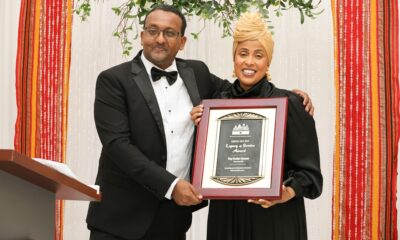
 Local News1 month ago
Local News1 month agoCelebrating Community: The Inaugural Samafal Gala at the Minnesota Somali Community Center
-

 Local News4 months ago
Local News4 months agoGovernor Walz Announces Minnesota Ranked as a Top State for Business
-
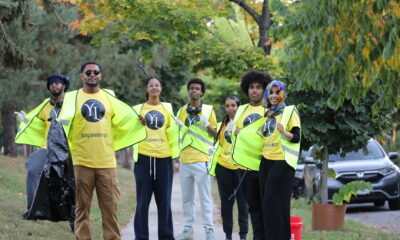
 Community2 months ago
Community2 months agoYouth Leader and Mentor: Mohamed Jama’s Fight for Change in Whittier
-
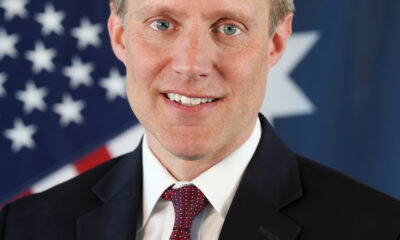
 Local News4 months ago
Local News4 months agoSecretary Simon Named President of the National Association of Secretaries of State
-

 Local News2 months ago
Local News2 months agoBCA Identifies man shot by Minneapolis police after firing AK-47 in Minneapolis apartment building
-

 Local News2 weeks ago
Local News2 weeks agoNINKII SHANTA GABDHOOD SHILKA KU DILAY OO DIIDAY HESHIIS QIRASHO AH, GO’AANSADAYNA IN MAXKAMAD LA HORGEEYO
-

 Local News1 week ago
Local News1 week agoMagaaladda St. Paul oo bixisay deymo lagu lahaa 32,000 oo qof
-
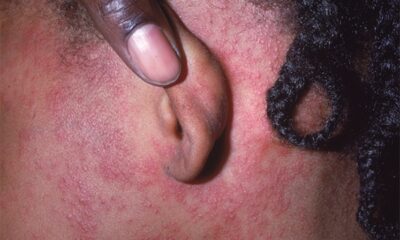
 Health2 months ago
Health2 months agoAttention, Minnesota! Measles Outbreak Alert


